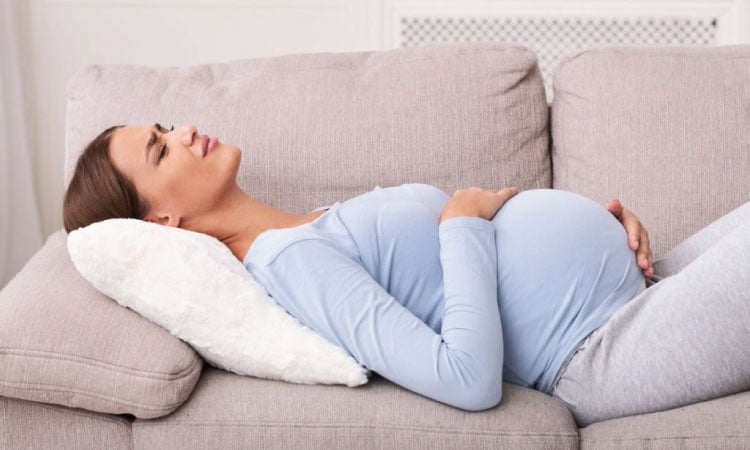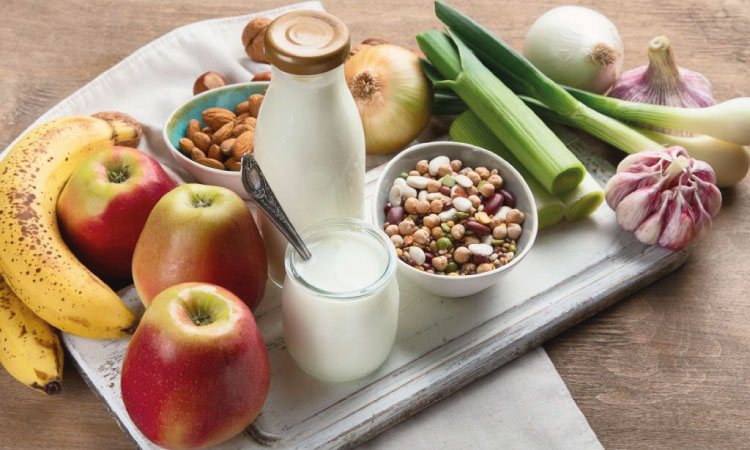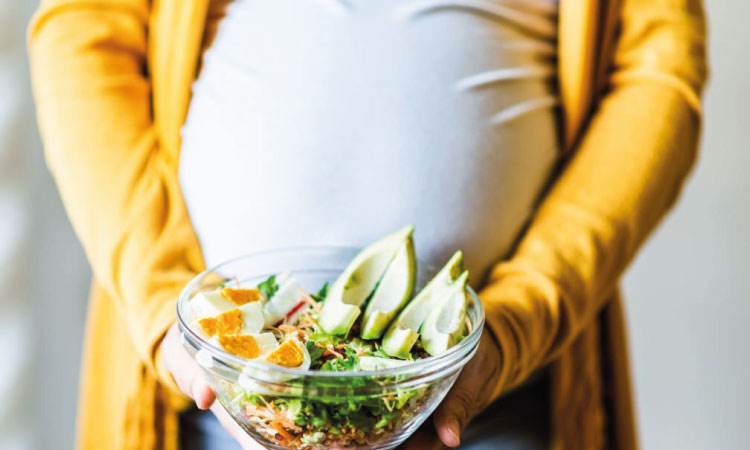It is an important issue for pregnant women, for obvious reasons, to ensure that their food is safe to consume. As a result of the changes in metabolism and circulation during pregnancy, pregnant women are more prone to food poisoning. Food poisoning can be a dangerous sign during pregnancy. So, what happens when you have food poisoning when pregnant? In the worst possible case scenario, it may cause miscarriage, birth defects, premature birth, or even stillbirth. You can read about the causes, symptoms, and treatment options for food poisoning during pregnancy on this page.
What Can Cause Food Poisoning During Pregnancy?
When a woman is pregnant, her immune system is weaker than usual. She has, therefore, a harder time fending off any germs that might sneak onto her food and make her sick. Microbes or the toxins they produce are capable of contaminating food. Pregnant women are at risk of getting food poisoning if their food is not prepared properly. Poisoning can be caused by many different things.
According to our panel gynaeclogist Dr Ankita Patel Tayal, food poisoning can be even more dangerous to your baby’s health than to yours. If you develop food poisoning during the first 3 months of pregnancy, it can cause a miscarriage. It if happens later in the pregnancy, it can cause your baby to be born prematurely. Food poisoning can also cause a stillbirth or a baby who is born very ill.
Pregnant women can get food poisoning when they eat foods contaminated with:
- Bacteria
- Parasites
- Viruses
- Certain chemicals
The following are the main types of food poisoning during pregnancy.
1. Listeriosis
- Caused by bacteria called Listeria monocytogenes
- The bacteria are found in a variety of foods including prepared meats, poultry, and seafood
- The infection can be contracted by pregnant women who consume unpasteurized dairy products
- There is a 13-fold increase in listeriosis risk for pregnant women1.
2. Escherichia coli (E. coli)
The gastrointestinal tract of humans and animals is home to E. coli bacteria. It usually doesn’t cause problems for them. Some strains of E coli do, however, have the ability to cause food poisoning2.
- Fruit juices that are unpasteurized as well as yogurt and cheese made from raw milk can make a pregnant woman ill
- The bacteria can be found in undercooked ground meat
- Greens like leafy greens are particularly susceptible to E coli from the growing environment
- Bacteria might be present in the water used to wash fruit and vegetables
Related Reading: Top 11 Precautions To Take In The First Trimester Of Pregnancy
3. Salmonella
- Salmonellosis is the disease caused by this bacterium
- Pregnant women commonly get it from undercooked or raw eggs, meats, poultry, or unpasteurized foods
- You can also get it by eating food that has somehow come into contact with soil or animal waste contaminated with salmonella
4. Campylobacter
- Campylobacteriosis is the infection caused by this bacterium
- Pregnant women can get this infection from contaminated food and water
5. Norovirus
- Noroviruses are the leading cause of foodborne illness3
- It is very easy and quick for the virus to spread through contaminated food, drinks, and surfaces
6. Chemicals
Chemical food poisoning is caused when pregnant women eat plants or animals that contain toxins like mushrooms, poisonous plants, or marine animals that contain naturally occurring toxins4.
Calculate Due Date With LMP
Harmful chemicals may be present in:
- Toxic fish and shellfish. Toxins are generally produced by algae or bacteria
- Some kinds of wild mushrooms
- Chemical pesticides are present in large quantities in unwashed products
What Happens If I Get Food Poisoning While Pregnant?
Depending on the type of food poisoning, the outcome will vary. Some types of food poisoning are more dangerous than others. For example:
- A pregnant woman can be at risk for listeriosis at any stage of her pregnancy, and it can lead to miscarriages, stillbirths, low birth weight, and a range of other complications
- Salmonella is responsible for causing an illness called salmonellosis, which can cause serious complications for a pregnant woman and her unborn child. The baby might be at risk of developing meningitis if they are born with salmonellosis
- Dehydration caused by diarrhea is the main danger of E coli. It is also one of the leading causes of urinary tract infections in pregnant women5. During pregnancy, UTIs can endanger the mother and baby.
- Toxoplasmosis food poisoning caused by Toxoplasma gondii is responsible for stillbirths and miscarriages
Related Reading: 18 Foods That Can Cause Miscarriage In Early Pregnancy
Consequently, food poisoning in pregnancy can be extremely harmful to the developing baby, resulting in early labor, preterm birth, or stillbirth. If you accidentally ate spoiled food during pregnancy, you should inform your doctor as soon as possible. Sometimes it may resolve itself without harming pregnancy. However, food poisoning during pregnancy can also have serious consequences, since you will likely pass on the bacteria that caused your sickness, like Salmonella or Listeria, to your baby.
According to our panel gynaecologist Dr Ankita Patel Tayal, you must let your doctor know if you become dehydrated. Severe dehydration during pregnancy might require hospitalization or an intravenous access to give IV fluids.
6 Signs Of Food Poisoning While Pregnancy

Pregnant women with food poisoning generally feel unwell. They may experience fatigue, aches, and chills. Here are 6 generalsigns of food poisoning while pregnant:
- Feeling queasy
- Cramps in the abdomen
- Nausea
- Throwing up
- Intense diarrhea
- Fever
Food poisoning symptoms can vary according to when someone eats the contaminated food and what type of poisoning they have. The duration of food poisoning varies depending on the cause, but it usually lasts from a few hours to several days after exposure to contaminated food or fluid.
Symptoms of Listeria can develop between a week and a month after exposure. Some of these symptoms include6:
- Fever/ chills
- Muscle ache
- Flu-like signs
- Headache
- Abdominal or back pain
- Fatigue
The onset of salmonella symptoms is generally between six hours and six days following exposure to the bacteria. The signs and symptoms include7:
- Stomach pain
- Loss of appetite
- Vomiting
- Diarrhea
- Headache
- Nausea
Norovirus can cause food poisoning symptoms as early as 12 hours after ingesting the virus. Symptoms may also appear 1 or 2 days after ingesting the virus8:
- Stomach cramps
- Low-grade fever
- Diarrhea
- Vomiting
- Chills
- Nausea
E. coli symptoms appear within 3–4 days after consuming the contaminated food or drink. These symptoms may include9:
- Severe stomach cramps
- Throwing up
- Diarrhea (sometimes bloody)
8 Tips To Treat Food Poisoning During Pregnancy
When you have food poisoning, the treatment is usually determined by the source of the illness and the severity of your symptoms. Although many forms of food poisoning do not require treatment, some necessitate treatments and may persist for several days.
Following are some treatments for food poisoning:
1. Replacement of lost fluids
Any foodborne illness often results in dehydration as a complication. Dehydration during pregnancy can lead to many complications, including preterm labor. Pregnant women may lose a lot of fluids in a short period if they have persistent vomiting and diarrhea caused by food poisoning.
The body loses fluids and electrolytes as well as minerals such as sodium, potassium, and calcium. Replacement is necessary. Doctors may recommend hospitalization. To prevent or treat dehydration, doctors may administer fluids and salts intravenously. When there is no severe dehydration, drinking lots of fluids, including tender coconut water, will help combat tiredness and weakness caused by food poisoning.
2. Take a rest
An expecting mother might feel weak and weary as a result of illness and dehydration associated with food poisoning. Even after using home remedies to ease the symptoms of food poisoning, pregnant women still feel exhausted. The best way to get your body back to normal after food poisoning is by resting. A pregnant woman must get as much rest as she can until she feels better. She must give the stomach time to settle. Stop eating and drinking for at least a few hours.
3. Antibiotics
When pregnant women suffer severe symptoms of bacterial food poisoning, doctors may prescribe antibiotics after weighing the pros and cons. The use of antibiotics during pregnancy may protect the baby from infection. However, antibiotics do not treat food poisoning caused by viruses.
Intravenous antibiotics are required during hospitalization for food poisoning caused by listeria. The earlier the treatment begins, the better.
4. Incorporating the BRAT Diet
Bananas, rice, applesauce, and toast make up the BRAT diet, which helps soothe upset stomachs. After contracting food poisoning during pregnancy, eat this for as long as the mother is feeling unwell. She can also consume clear broth during this time. This diet includes foods that can help make the stools firmer and replenish nutrients that the pregnant woman may have lost during her illness. It is important to eat smaller, low-fat meals until the pregnant women are feeling better if they do not want to follow this diet.
Related Reading: 10 Health Benefits And 4 Risks Of Eating Banana During Pregnancy
5. Sucking on ice chips may help
The pregnant woman can try sucking on ice chips or taking small sips of water to help rehydrate her mouth. It also helps when the expecting woman experiences severe dehydration symptoms. Furthermore, she can drink clear sodas and non-caffeinated sports drinks as well.
6. Add probiotics to your meals

Dr Ankita Patel Tayal, MD obygyn, also recommends probiotics In the case of pregnant women who have experienced food poisoning. Studies suggest that some probiotics may help shorten a bout of diarrhea. Each and every one of us has bacteria that live inside us all the time. There are good bacteria as well as bad bacteria. The delicate balance between the two can be disturbed by food poisoning. It is possible to restore that balance by taking probiotics. Furthermore, probiotics can strengthen your gut and make you less susceptible to future food-borne illnesses. Buttermilk during pregnancy is recommended as its rich in probiotics.
7. Make smart food choices
Furthermore, refrain from eating or drinking for several hours after the onset of symptoms. Try bland foods, like crackers and sports drinks, when you begin eating and drinking again. Keep hydrated by sucking on ice chips.
Eat again slowly. If the pregnant woman feels nauseated again, she must stop eating. She should avoid certain foods and substances until her nausea subsides. Caffeine, alcohol, junk food, dairy, and fatty foods are among these.
8. Drinking ginger or mint tea
Traditional medicine practices around the world have used ginger root for centuries. Ginger during pregnancy is the best remedy for nausea. Mint can also significantly contribute to calming the stomach. Mint or ginger tea helps pregnant women stay hydrated as well as relieve nausea and vomiting caused by food poisoning. Ginger tea should, however, not be consumed in excess as the heat-generating property of ginger is not beneficial during pregnancy.
Related Reading: 11 Healthy And Refreshing Juices During Pregnancy To Drink
When To See The Doctor For Food Poisoning While Pregnant?
When you experience any of the following problems after food poisoning during pregnancy, you should contact your doctor immediately. Treatment is necessary when you experience any of these symptoms:
- Constant vomiting or diarrhea that doesn’t seem to stop
- If exhibit signs of dehydration
- Fever with a temperature exceeding 101 degrees Fahrenheit
- Experiencing severe abdominal pain
- Stools with blood or pus in them
Can Food Poisoning While Pregnant Hurt The Baby?
Food poisoning can be harmful to both the unborn child and the mother. Dehydration is the most common complication associated with food poisoning. Mothers can also sustain kidney damage from some foodborne illnesses, especially E coli.
As a fetus grows, it needs to receive as many nutrients as possible from its mother. When a mother cannot keep food in her body for a long enough time to absorb nutrients, the fetus may not grow well.
If a pregnant woman has mild symptoms of food poisoning, she may pass an infection to her unborn child without even knowing it. There are specific types of food poisoning that are very dangerous to an unborn child.
For example,
- If the pregnant woman contracts listeriosis, she may not display any symptoms. In the meantime, she can potentially pass on the disease to the unborn child. In turn, this can result in serious health problems for the fetus such as:
- Seizures
- Paralysis
- Issues with the brain, heart, or kidneys
- Blindness
- Listeria can cause preterm labor, low birth weight, miscarriage, and stillbirth in the worst-case scenario
- Salmonellosis can also be transmitted to unborn babies, which can lead to serious complications like meningitis
- If the pregnant woman gets campylobacter early in her pregnancy, she can experience a miscarriage. Having it at the time she gives birth can also be very dangerous for the newborn as she can pass it on to the baby. Infections in a newborn can be catastrophic
Conclusion

Food poisoning is an unpleasant experience almost every one of us has experienced at least once in our lives. Normally, food poisoning resolves after a few days. However, it can be dangerous and even fatal to a pregnant woman. Following food safety protocols can prevent food poisoning, ensure a healthy pregnancy, and prevent any related issues for pregnant women and their babies.

